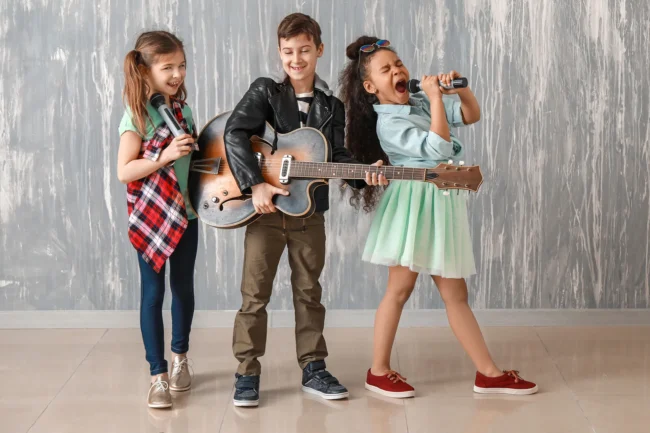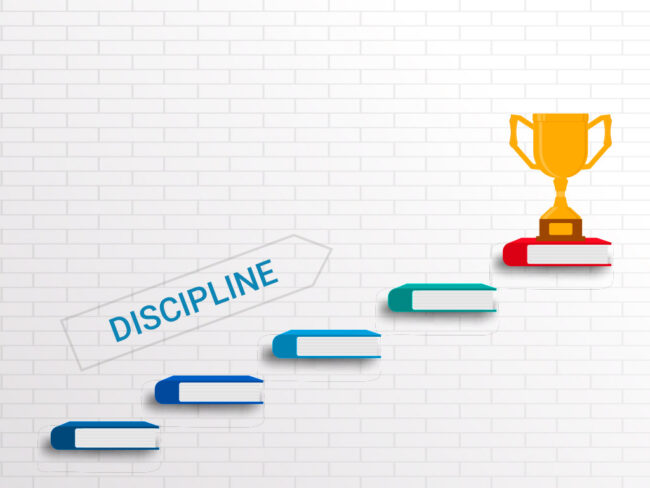Music is a universal language that has the power to transcend cultural, linguistic, and geographical barriers. It is an art form that can be enjoyed by people of all ages and backgrounds. Learning music has numerous benefits, both for personal development and for society as a whole. In this article, we will explore some of the key benefits of learning music.
1. Improves Cognitive Function

One of the most significant benefits of learning music is its impact on cognitive development. Studies have shown that musical training enhances brain development in children, particularly in areas of the brain responsible for processing sound, language, and speech. Furthermore, learning music has been found to improve memory, spatial reasoning, and other cognitive skills.
Learning music has been shown to improve cognitive function in a number of ways. Studies have found that children who learn music have better verbal memory, spatial reasoning, and literacy skills than those who do not. Additionally, learning music has been found to improve executive function, which includes skills such as planning, problem-solving, and decision-making.
For instance, learning to read and play music involves decoding symbols and translating them into physical movements. This process activates various areas of the brain, including the visual, auditory, and motor cortices. Additionally, playing an instrument requires the use of both hands, which helps develop coordination and fine motor skills. These cognitive benefits are not only limited to children but also extend to adults who learn music.
2. Enhances Creativity
Learning music can enhance creativity in a number of ways. It can help students develop a greater appreciation for the creative process, and it can help them learn how to express themselves in new and innovative ways. By learning to play an instrument or compose music, students can explore different sounds and styles and develop their own unique voice. Music is a creative art form that encourages experimentation and innovation.
Learning music allows individuals to express themselves creatively and develop their unique style and voice. This process of self-discovery can have a significant impact on personal growth and development.
Furthermore, music can inspire individuals to think outside the box and approach problems in a new and creative way. The improvisational nature of music encourages individuals to take risks and explore new ideas, leading to greater innovation and creativity in all areas of life.
3. Boosts Physical Health

Learning music can also have a positive impact on our physical health. Playing an instrument requires physical movement and can improve hand-eye coordination, posture, and muscle strength. Furthermore, singing has been found to improve lung capacity and breathing, leading to better overall health and well-being.
Learning music also has a positive impact on our immune system. A study found that singing in a choir led to an increase in immunoglobulin A, a protein that helps fight off infections. Additionally, listening to music has been found to reduce the perception of pain and improve overall mood, leading to better health outcomes.
4. Boosts Self-Esteem
Learning music through best courses for Music composition can also boost self-esteem. As students develop their musical skills, they gain a sense of accomplishment and confidence in their abilities. This can translate into other areas of their lives as well, as they learn to take on new challenges and overcome obstacles.
5. Improves Academic Performance

Learning music has been found to have a positive impact on academic performance, particularly in areas such as math, reading, and language. Studies have shown that children who learn music have better cognitive skills, which can translate into better academic performance.
For example, playing an instrument requires an understanding of rhythm, melody, and harmony, which helps develop mathematical skills such as pattern recognition and spatial reasoning. Learning to read music also involves decoding symbols, which can improve reading skills. Additionally, singing has been found to improve language skills, including pronunciation, vocabulary, and grammar.
6. Provides Stress Relief
Music has a calming effect on the mind and body, and learning to play an instrument can provide an excellent form of stress relief. By focusing on the music, students can take their minds off of their worries and concerns, and can find a sense of peace and relaxation.
7. Enhances Social Skills

Learning music can also enhance social skills. Many music lessons and rehearsals involve working in groups or ensembles, which can help students develop communication and collaboration skills. Additionally, performing in front of others can help students overcome stage fright and develop a greater sense of confidence in their abilities.
8. Improves Memory
Learning music has been shown to improve memory in a number of ways. Studies have found that musical training can improve both verbal and visual memory, as well as short-term memory. Additionally, learning to play an instrument requires students to memorize notes, chords, and rhythms, which can help improve overall memory skills.
9. Develops Discipline and Perseverance

Learning music through sources like knowitgetit.com requires discipline and perseverance. Students must commit to regular practice sessions in order to develop their skills, and must be willing to work through difficult passages or concepts. By learning music, students can develop a strong work ethic and a sense of perseverance that can be applied to other areas of their lives.
10. Provides a Sense of Community
Music has the power to bring people together, and learning music can provide a sense of community and belonging. Many musicians join bands, orchestras, or choirs, where they can connect with other like-minded individuals and share their passion for music.
11. Enhances Cultural Understanding

Music is an integral part of many different cultures, and learning music can help enhance cultural understanding and appreciation. By exploring different musical traditions and styles, students can develop a greater sense of empathy and understanding for people from different backgrounds.
12. Provides a Lifelong Source of Enjoyment
Finally, learning music can provide a lifelong source of enjoyment. Even after students have completed their formal music education, they can continue to play and enjoy music for the rest of their lives. Whether playing for their own enjoyment or performing for others, music can provide a sense of fulfillment and joy that can last a lifetime.
13. Enhances Emotional Well-Being

Learning music can also have a profound impact on our emotional well-being. Music has been found to evoke powerful emotions and moods, and learning to create music can be a powerful tool for self-expression and emotional regulation.
Research has shown that playing music can reduce stress, anxiety, and depression. Moreover, playing music in a group setting can foster a sense of community and social connectedness, leading to greater feelings of happiness and fulfillment. Learning music can also provide a healthy outlet for emotions and help individuals cope with challenging life situations.
Final Word
In conclusion, learning music has numerous benefits for both personal development and society as a whole. From improving cognitive function and enhancing creativity to boosting self-esteem and providing stress relief, music can have a profound impact on our lives.
Music is a fundamental part of human culture, present in all societies across the globe. Music is not just a form of entertainment, but it also has many benefits for our physical, emotional, and cognitive well-being.
Learning music has been found to have numerous advantages that go beyond simply enjoying the art form.
